In 1949, English novelist and satirist George Orwell published his final and most famous book. 1984 went on to become perhaps the most recognizable and influential depiction of a totalitarian state in all of literature, and caused a variety of terms and ideas (including “Orwellian”) to enter the public lexicon, many of them still in use today, often by people who may have no idea where they originally came from.
1984 paints a portrait of a totalitarian government that controls not only behavior but thought, policing it through relentless propaganda, reeducation, and historical revisionism. Ironically enough, regardless of your own political leanings, it probably feels more topical than ever four decades after the imaginary future year in which it was set.
If you’ve already read Orwell’s classic and are looking for something more, we recommend these 10 books, which take his revolutionary ideas and run with them in startling and mesmerizing directions.
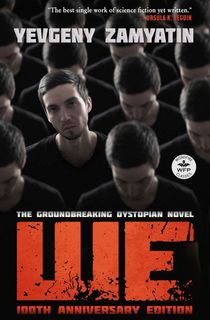
We
Before Aldous Huxley’s Brave New World, before Orwell’s 1984, there was this classic of dystopian literature, written in Russia but smuggled abroad for publication after it was banned by Soviet censors.
We details a world that will feel familiar to readers of many dystopian novels that have come since, a future where free will itself has effectively been outlawed, where humans are reduced to numbers, and where all of society has been reorganized along lines of mathematical and industrial efficiency. Into this world comes an unquantifiable element – love – in the book that Margaret Atwood called “one of the most important dystopias of the 20th century.”
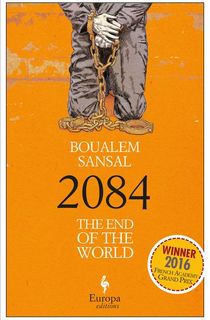
2084
The year 1984 has come and gone, but 2084 remains not so far off, and in Boualem Sansal’s “sharply satirical” (Library Journal) tribute to Orwell’s classic, we see a world that feels as familiar as Orwell and as near as today’s headlines.
The kingdom of Abistan is ruled by religious extremists who have imposed a caliphate that forbids deviation of any kind, a place where remembering the past is forbidden. It is all too easy for such a book to portray one particular group or party as “the problem,” but in Sansal’s “moving and cautionary story” it becomes clear that “the religion was not originally evil but has been corrupted” (The Times Literary Supplement).
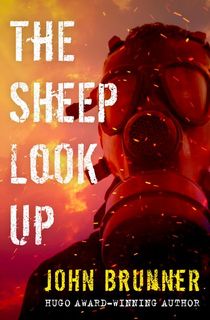
The Sheep Look Up
A Nebula Award finalist from a Hugo Award-winning author, The Sheep Look Up is a “brilliantly crafted, engrossing” (The Guardian) novel of environmental catastrophe that takes its place alongside the great works of dystopian fiction.
In a future where air pollution has become so bad that the world is virtually unlivable, the poor struggle to survive while the rich squabble over their resources and an ineffectual and corrupt government stands idly by. Into all this comes an environmental activist who is pulled in numerous directions by the various factions of a dying world, even as he struggles just to live another day.
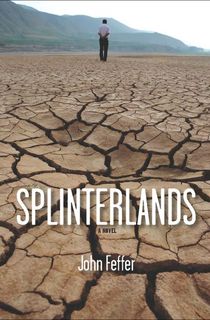
Splinterlands
John Feffer is a former foreign policy analyst who paints “a startling portrait of a post-apocalyptic tomorrow that is fast becoming a reality today” (Barbara Ehrenreich, author of Nickel and Dimed).
The result is a “wild ride through a bleak future, casting a harsh, thought-provoking light on that future’s modern-day roots” (Foreword Reviews) and providing a chilling warning for us all about the dangers of nationalism, a rapidly-warming planet, and many more threats that face us with growing urgency every day.
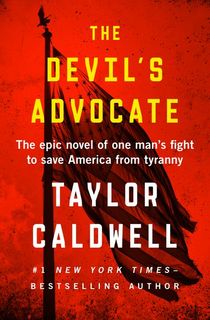
The Devil's Advocate
Writing under the pen name Taylor Caldwell, Janet Miriam Caldwell was a prolific and successful science fiction author who was also an occasional writer for the monthly journal of the notorious John Birch Society, so it may come as no surprise that she held some fairly firm political views.
Some of these found their way into her fiction, including such works of dystopian literature as this 1952 novel hailed as a “tour de force” by Kirkus Reviews, which depicts a struggle between insurgents and a totalitarian government in a near-future America.
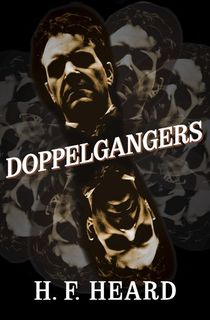
Doppelgangers
Henry FitzGerald Heard was a prominent philosopher, historian, and public lecturer who mentored numerous major figures in the first half of the 20th century, including Aldous Huxley.
He was also a writer himself, and this 1947 novel tells of a world split in two (those who live above the ground and those who live below) and a psychological revolution fought using an exact double of the ruler of the above-ground world. It has been hailed by the New York Times as a “thriller with depth,” and sits among the great early dystopian novels.

1985
George Orwell published 1984 in 1949; Anthony Burgess followed it up with 1985 in 1978.
Divided into two parts, 1985 begins with a detailed analysis of Orwell’s novel – both its qualities and its failings, as Burgess sees them – followed by a novella which tells its own version of a future Britain, this one dominated by all-powerful trade unions and heavily influenced by Islam as a result of large-scale immigration. The result is a unique book that is both ode to Orwell’s novel and example of Burgess’ own political ideals.
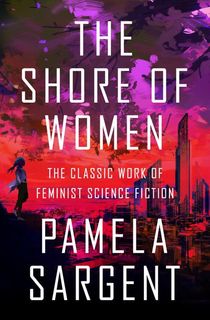
The Shore of Women
Winner of the Nebula and Locus awards, Pamela Sargent has been called “one of the genre’s best writers” (Washington Post Book World). In The Shore of Women, she introduces a dystopian future ravaged by nuclear war, in which women rule the world and men have been exiled to the wilderness beyond their great walled cities.
When one woman questions this arrangement, however, she finds herself cast out amongst the very men she has been taught to fear and scorn…
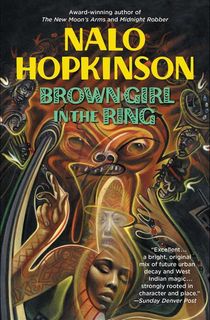
Brown Girl in the Ring
Blending dystopian science fiction with elements of Afro-Caribbean culture, folklore, and magical realism, Nalo Hopkinson’s debut novel won a Locus Award and a John W. Campbell Award for Best New Writer.
In a ruined future version of Toronto, Ti-Jeanne is a single mother trying to raise her son and coping with the world around her while also clashing with her grandmother’s culture and position as a respected apothecary and spiritualist. But she may have to reconcile these two seemingly very different worlds if she hopes to survive.
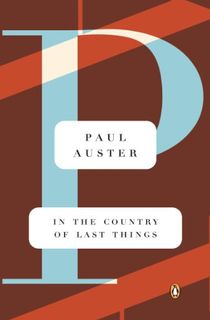
In the Country of Last Things
“One of the better modern attempts at describing hell.” That’s how the Washington Post Book World described this dystopian novel from “one of the great American prose stylists of our time” (New York Times).
In the Country of Last Things follows Anna Blume as she ventures into a devastated city in search of her brother. Will she ever find him – and will she ever leave the city alive? These and many others are the questions posed this spare and powerful novel of survival.


